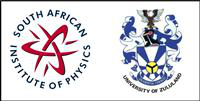Speaker
Apply to be<br> considered for a student <br> award (Yes / No)?
yes
Level for award<br> (Hons, MSc, <br> PhD)?
PhD
Abstract content <br> (Max 300 words)
Even though numerous investigations have been performed to study the 12C nucleus in the past, questions still remain regarding some of its unbound states. One of the mysteries of this nucleus involves the 0+2 , Ex = 7.654 MeV state also known as the Hoyle state. This state was first predicted by Fred Hoyle [1] in 1954 and discovered three years later [2]. Through several theoretical and experimental studies, it has been reported that it possesses an α-cluster structure. One of the long standing problems is connected with the existence of a 2+ excited state build upon the Hoyle state. Recently the search for this state has attracted much interest both theoretically and experimentally, leading to several candidates of this state reported in Ref [3,4,5,6]. Up to date, there are still questions regarding the exact nature of this state.
This talk gives an overview of the preliminary results of the 14C(p,t)12C [ααα] reaction. The experiment was performed at iThemba LABS, with the high resolution magnetic spectrometer in conjunction with particle telescopes consisting of silicon detectors. The telescopes were placed in the target chamber and their primary use was to detect alpha particles to identify the break up decay path of 12C, while the spectrometer was used to detect the ejectile (triton) to determine the excitation energy with high resolution.
[1]. F. Hoyle, Astrophys. J. Suppl. 1, 121 (1954).
[2]. C.W. Cook et al ,Phys.Rev. 107, 108 (1957).
[3]. H. Horiuchi, Progr. Theor. Phys. 53, 447 (1975).
[4]. M. Freer et al., Phys.Rev.C80, R041303 (2009)
[5]. M. Itoh et al., Phys.Rev.C84, 054308 (2011)
[6]. W.R. Zimmerman et al., Phys. Rev. Lett., 110 (2013)
Would you like to <br> submit a short paper <br> for the Conference <br> Proceedings (Yes / No)?
no
Main supervisor (name and email)<br>and his / her institution
Prof Paul Papka, papka@sun.ac.za, University of Stellenbosch

